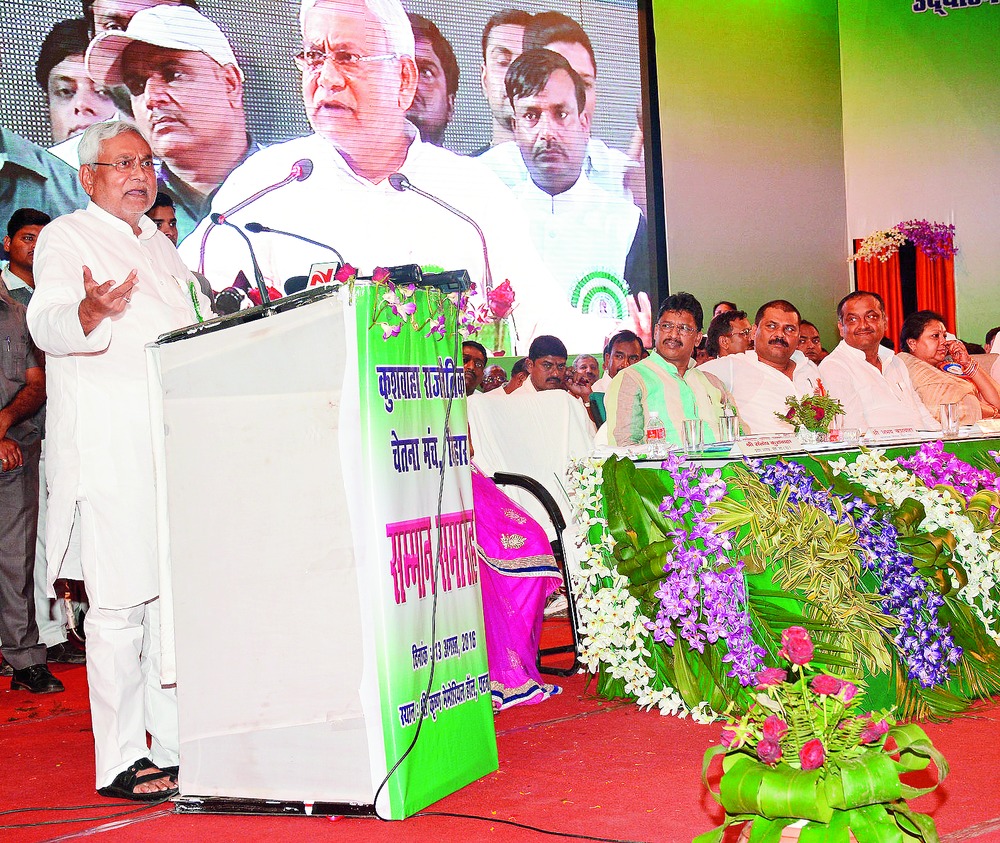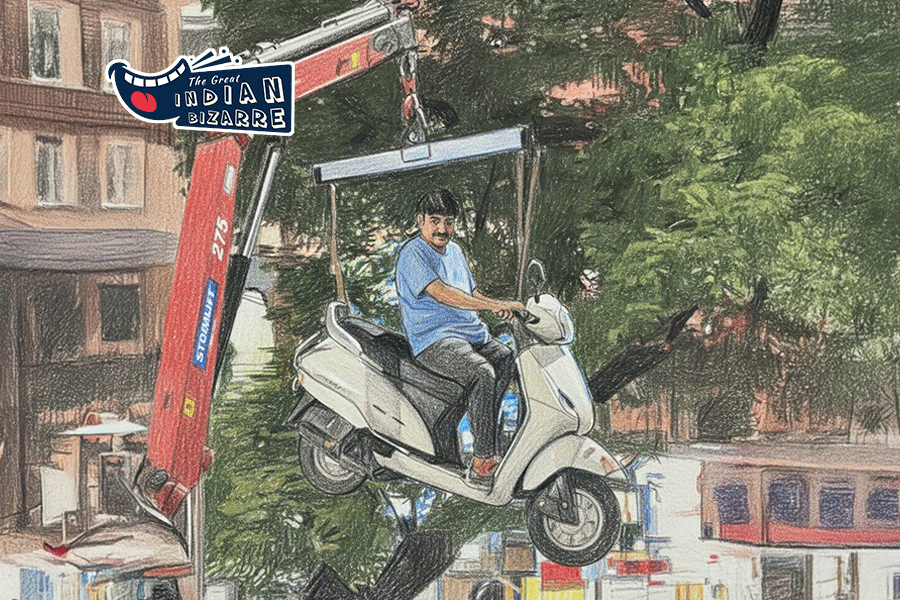
If India wants to counter China and compete with it, it will have to enforce prohibition, believes the chief minister.
Nitish Kumar today brought the China factor in his six-month-old liquor ban in the state and said it was necessary if our country wanted to counter or compete with its giant neighbour.
China is the world's second largest economy with a $11.4 trillion GDP, and a share of around 9.3 per cent in the global GDP. India is the seventh largest economy with a GDP of around $2.3 trillion as per World Bank data.
"People wish we compete with China. But will India and its new generation counter it while being drowned in liquor? Our country will have to enforce prohibition if it wants to progress," Nitish said.
Elaborating on the need for prohibition, Nitish put forth the example of China, which he said was immersed in opium addiction, but progressed after quitting it.
The chief minister was speaking at Takht Sri Harmandir Sahib, the birthplace of Guru Gobind Singh, on the launch of Jagriti Yatra (awareness campaign) for the 350th birth anniversary celebrations of the 10th guru of the Sikhs, which will be held from December 30 this year to January 8, 2016.
Nitish added that prohibition has been enforced in Bihar this year as it was the 350th birth anniversary of Guru Gobind Singh and also the centenary year of Champaran Satyagraha of Mahatma Gandhi.
"They had spread the message of ridding the society of liquor so that people could progress properly," he said.
"The success of prohibition is the biggest tribute of devotion. Just coming here and paying obeisance is not the symbol of devotion. Learn something. Understand the basic element of Guru Granth Sahib. No service could be greater than the environment of love, harmony and de-addiction in the society," Nitish added.
He hit out at those who have been speaking against prohibition by quoting Swami Vivekananda, who used to say that people first deride anybody who embarks on a big venture, then oppose him, and finally concede and fall in line.
"Banning liquor has been a huge task and I have full faith that it will succeed with the support of the people. Bihar will set an example. The mandate today favours prohibition and if people keep supporting it, those who are opposing it will fall in line," Nitish added.
The chief minister had been speaking in favour of the prohibition at almost all his public engagements. He even went to the extent of asking those who opposed the ban, not to do so and instead "switch off the lights and drink juice to feel as if you were drinking liquor".
The antics of two Scots William Jardine and James Matheson are said to have had an "incalculable" effect on the health of China as they shipped in the best opium from India and perpetuated a desire for a drug consumed by an estimated 90 per cent of the country's coastal population.
By the mid 1830s there were an estimated 3 million opium users in China. This rose to 15m by the late 1890s. By then, Jardine and Matheson had long ago left China but their importation of the drug had left a culture of consumption so ingrained that it had permeated all classes of Chinese society.
China was in the grip of opium fever and the drug posed a serious social problem. It was estimated that 20 per cent of central government officials smoked the drug along with 80 per cent of the country's clerk class.
There is, however, no prohibition in China.











